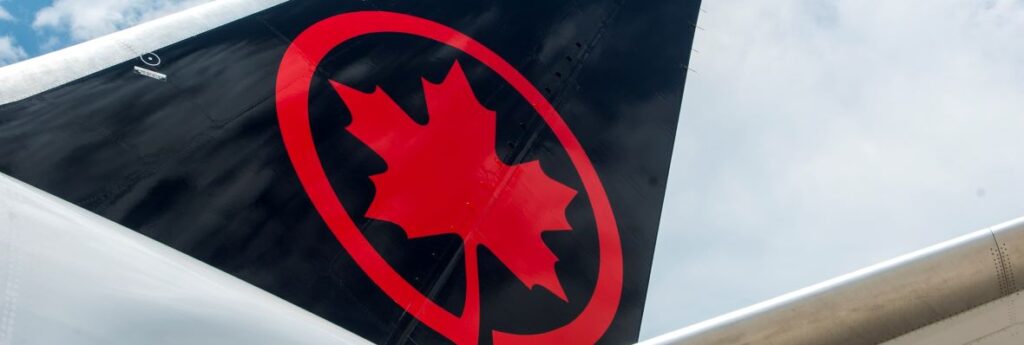Air Canada sees hope on the horizon as revenues soared over 2020 levels last quarter, despite continuing to operate far below pre-pandemic capacity and at a loss of hundreds of millions of dollars. Domestic leisure bookings have started to rebound, but business travel remains down across the board amid the persistence of remote work.
“We’re witnessing a strong rebound in VFR (visiting friends and relatives), and leisure traffic remains strong, specifically within North America, across the Atlantic and to sun destinations,” chief operating officer Lucie Guillemette told investors on a conference call Tuesday. “We were pretty confident that come 2022 corporate Canada returns to their offices and business travel should return. But no doubt that for us, business has lagged a little bit.”
Air Canada revenue nearly tripled year over year to $2.10 billion in the quarter ended Sept. 30 alongside an 87%.
But revenue and capacity remained more than 60% and two-thirds below Air Canada’s third-quarter figures in 2019 respectively as COVID-19 fallout continues to damage carriers’ bottom lines.
“There’s no textbook on this type of recovery, or any in the history. There’s no doubt we’re very encouraged by what we see. And there’s no doubt that the length of the recovery has moved in from the consensus of 2025 to at least 2024 and maybe 2023,” chief executive Michael Rousseau said.
In its outlook, the country’s largest airline said it plans to increase its fourth-quarter capacity by about 135% compared with the same quarter in 2020. Compared with the same quarter in 2019, fourth-quarter capacity is expected to drop 47%.
Rousseau also stressed a record cargo performance of more than $1 billion so far this year. The carrier began to shift toward air freight last spring, converting several of its retired Boeing 767 jetliners to cargo aircraft.
With fewer flights and less cargo being transported in the luggage compartments of passenger planes, the price of shipping cargo by air has increased. Other airlines such as American Airlines and United Airlines also began operating cargo-only last year, hoping to use the opportunity to stem their losses.
Air Canada reported a loss of $640 million in its third quarter even as operating revenue nearly tripled compared with a year ago.
The loss amounted to $1.79 per diluted share last quarter compared with a loss of $685 million or $2.31 per diluted share a year earlier, the airline said.
Employees suspended
Meanwhile, Air Canada has suspended more than 800 employees for not being fully vaccinated against COVID-19 in line with federal rules.
The vast majority of Air Canada’s 27,000 cabin crew, customer service agents and others have received both shots, chief executive Rousseau said Tuesday.
“Our employees have done their part, with now over 96 percent fully vaccinated. The employees who are not vaccinated or do not have a medical or other permitted exemption have been put on unpaid leave,” he said on a conference call with investors.
The layoffs are “across the company” rather than concentrated in any particular job, spokesman Peter Fitzpatrick said in an email.
The proportions align with those at WestJet Airlines Ltd., where fewer than four percent of workers – less than 300 out of 7,300 – are unvaccinated, the company said in an email.
Prime Minister Justin Trudeau announced last month that as of Oct. 30, Ottawa would require federally regulated air, rail and shipping companies to establish mandatory vaccination policies for employees.

